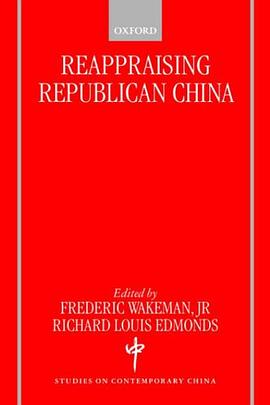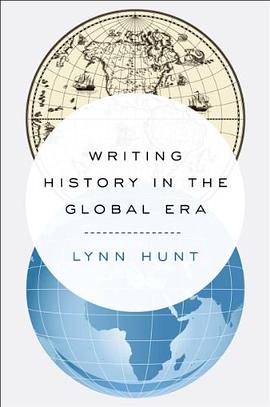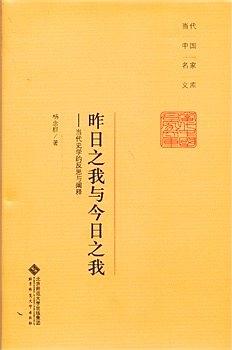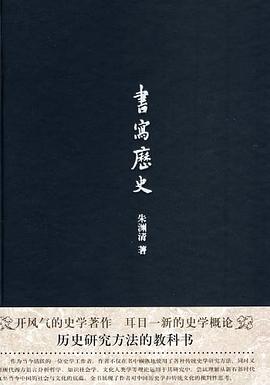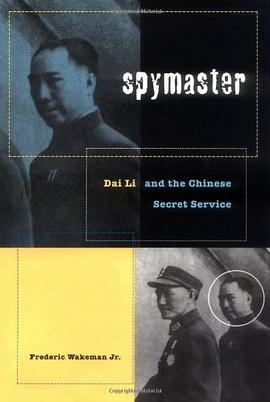

具體描述
The most feared man in China, Dai Li, was chief of Chiang Kai-shek's secret service during World War II. This sweeping biography of "China's Himmler," based on recently opened intelligence archives, traces Dai's rise from obscurity as a rural hooligan and Green Gang blood-brother to commander of the paramilitary units of the Blue Shirts and of the dreaded Military Statistics Bureau: the world's largest spy and counterespionage organization of its time.
In addition to exposing the inner workings of the secret police, whose death squads, kidnappings, torture, and omnipresent surveillance terrorized critics of the Nationalist regime, Dai Li's personal story opens a unique window on the clandestine history of China's Republican period. This study uncovers the origins of the Cold War in the interactions of Chinese and American special services operatives who cooperated with Dai Li in the resistance to the Japanese invasion in the 1930s and who laid the groundwork for an ongoing alliance against the Communists during the revolution that followed in the 1940s. Frederic Wakeman Jr. illustrates how the anti-Communist activities Dai Li led altered the balance of power within the Chinese Communist Party, setting the stage for Mao Zedong's rise to supremacy. He reveals a complex and remarkable personality that masked a dark presence in modern China—one that still pervades the secret services on both sides of the Taiwan Strait.
Wakeman masterfully illuminates a previously little-understood world as he discloses the details of Chinese secret service trade-craft. Anyone interested in the development of modern espionage will be intrigued by Spymaster, which spells out in detail the ways in which the Chinese used their own traditional methods, in addition to adapting foreign ways, to create a modern intelligence service.
著者簡介
Frederic Wakeman Jr. is Haas Professor of Asian Studies in the Department of History at the University of California, Berkeley. He is the author of The Shanghai Badlands: Wartime Terrorism and Urban Crime, 1937-1941 (1996), Policing Shanghai, 1927-1937 (California, 1995), and The Great Enterprise: The Manchu Reconstruction of Imperial Order in Seventeenth-Century China (California, 1985), among others.
圖書目錄
2 Living off the Land
3 Touben
4 The League of Ten
5 “Vigorous Practice”: The Chiang Freemasonry
6 The Founding of the Lixingshe
7 The Lixingshe and the Blue Shirts
8 The Blue Shirts’ “Fascism”
9 Ideological Rivalries: The Blue Shirts and the “CC” Clique
10 The Blue Shirts in the Provinces
11 The Shanghai Station, 1932–35
12 Death Squads
13 Assassinations
14 Police Academies
15 Sleeping in Their Coffins
16 Skirts and Sashes
17 War and the Special Movement Corps
18 The Training Camps
19 Codes
20 Dai Li, Milton Miles, and the Foundation of SACO
21 SACO Training Camps
22 Spying
23 Dai Li’s Wartime Smuggling Networks
24 Juntong in Wartime Chongqing
25 Falling Star
· · · · · · (收起)
讀後感
你哪里知道,蒋先生暴则有之,昏则完全不然。你没有看到他的统术的绝顶高明。他一向抓得很紧的是军队、特务和财政这三个命根子。他这三个命根子各有一套他最亲信的人替他看守;同时他又让这三种力量互相依赖互相牽制,而只听命于他一人。这三个方面的每一方面,又都各有三个鼎足并峙...
評分这是一篇关于“戴笠与中国特工”的超长的论文,写得周密细致,面面俱到,对了解中国近代国民党特工的发展应该有帮助。但与我预想的略有差距,很难讲有什么创意,也还是大量的史实堆积,对戴笠的个人分析偏少。 作为西方史学家里的“汉学家”,作为中国历史的旁观者,...
評分这是一篇关于“戴笠与中国特工”的超长的论文,写得周密细致,面面俱到,对了解中国近代国民党特工的发展应该有帮助。但与我预想的略有差距,很难讲有什么创意,也还是大量的史实堆积,对戴笠的个人分析偏少。 作为西方史学家里的“汉学家”,作为中国历史的旁观者,...
評分真的不行。 我没有受过专业历史训练,但是看过其他的论文,这个是真不行。 1.目标很大,戴笠和中国特工。这目标太大了,根本写不成,一个简简单单的刺杀都可以写成一本书,从时局引申到政治,有了前提条件才能引申出为什么有特工,以及特工的组织,这都是水到渠成的,而作者想...
評分真的不行。 我没有受过专业历史训练,但是看过其他的论文,这个是真不行。 1.目标很大,戴笠和中国特工。这目标太大了,根本写不成,一个简简单单的刺杀都可以写成一本书,从时局引申到政治,有了前提条件才能引申出为什么有特工,以及特工的组织,这都是水到渠成的,而作者想...
用戶評價
1 2 6 7 12-15 22 23
评分生為國傢,死為國傢,平生具俠義風,功罪蓋棺猶未定;名滿天下,謗滿天下,亂世行春鞦事,是非留待後人評。
评分閱於2012-2015 颱版
评分閱於2012-2015 颱版
评分1 2 6 7 12-15 22 23
相關圖書
本站所有內容均為互聯網搜索引擎提供的公開搜索信息,本站不存儲任何數據與內容,任何內容與數據均與本站無關,如有需要請聯繫相關搜索引擎包括但不限於百度,google,bing,sogou 等
© 2025 book.quotespace.org All Rights Reserved. 小美書屋 版权所有



